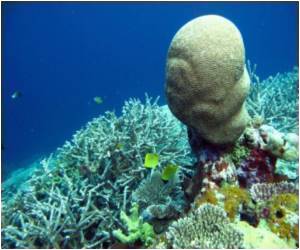Global warming could lead to mass extinction of marine life, warn scientists. What happened in prehistoric times could happen again thanks to accumulation of greenhouse gases, they say.

Using core samples drilled from the ocean bed off the coast of western Africa, the researchers studied layers of sediment from the Late Cretaceous Period (85 million years ago) across a 400,000-year timespan. They found a significant amount of organic material - marine life - buried within deoxygenated layers of the sediment.
"Our research points to a mass mortality in the oceans at a time when the Earth was going through a greenhouse effect, with high levels of carbon dioxide in the atmosphere, and rising temperatures, leading to a severe lack of oxygen (hypoxia) in the water that marine animals are dependent on," Professor Kennedy says.
"What's alarming to us as scientists is that there were only very slight natural changes that resulted in the onset of hypoxia in the deep ocean. This occurred relatively rapidly - in periods of hundreds of years, or possibly even less - not gradually over longer, geological time scales, which suggests that the Earth's oceans are in a much more delicate balance during greenhouse conditions than originally thought, and may respond in a more abrupt fashion to even subtle changes in temperature and CO2 levels than previously thought."
Professor Wagner says the results of their research, published in the Proceedings of the National Academy of Sciences (PNAS), have relevance for our modern world: "We know that 'dead zones' are rapidly growing in size and number in seas and oceans across the globe. These are areas of water that are lacking in oxygen and are suffering from increases of CO2, rising temperatures, nutrient run-off from agriculture and other factors."
Professor Kennedy says: "If you consider that the amount of carbon dioxide in our atmosphere has doubled over the past 50 years, this is like hitting our ecosystem with a sledge-hammer compared to the very small changes in incoming solar energy (radiation) which was capable of triggering these events in the past. This could have a catastrophic, profound impact on the sustainability of life in our oceans, which in turn is likely to impact on the sustainability of life for many land-based species, including humankind."
Advertisement
"This is nature's solution to the greenhouse effect and it could offer a possible solution for us. If we are able to learn more about this effect and its feedbacks, we may be able to manage it, and reduce the present rate of warming threatening our oceans."
Advertisement
Source-Medindia







